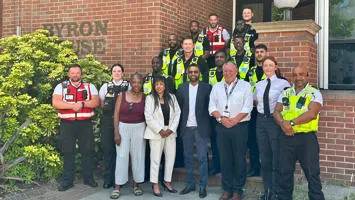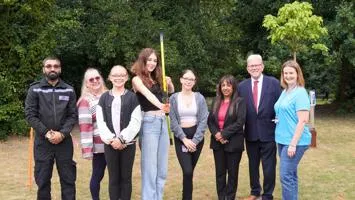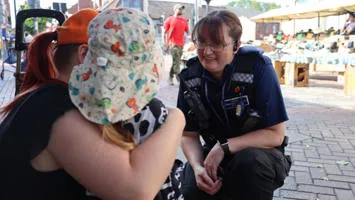
News
Keeping you up to date
Here you can find all the latest news from the Office of the Police and Crime Commissioner for Nottinghamshire.
You can also use our handy filter to narrow down news about topics you are interested or simply browse to find out what we have been doing on your behalf.
Grants and funding
Golden opportunity for community safety funding
Community and voluntary organisations are being offered the chance to apply to a £300,000 Safer Nottinghamshire Together grant funding pot.
11 June 2025
Antisocial behaviour
Antisocial behaviour falls significantly in hotspot areas
Antisocial behaviour blighting residents’ lives has reduced by up to 58 per cent in hotspot areas across Nottinghamshire
22 September 2025
Commissioned services
Former drug user and shoplifter turns life around with support of police scheme
“I wouldn’t be here now if it wasn’t for the Open 2 Recovery project. I’ve started living again and the project has given me that lifeline.”
15 September 2025
Rural crime
New scheme shows commitment to tackling rural crime
An initiative has launched across Nottinghamshire as part of an ongoing commitment to tackle rural crime and build safer, more connected communities.
10 September 2025
Grants and funding
Prince Harry joins forces with PCC to back Nottingham youth projects
Young people were given the royal seal of approval when Prince Harry visited St Ann’s to announce £1.1 million of new funding for children’s projects.
10 September 2025
Assurance
Scrutineer thanked after more than a decade of service
A scrutineer who has provided assurance to the PCC and Chief Constable in Nottinghamshire for more than a decade has been thanked for his service.
8 September 2025
Safer Streets
PCC and Chief Constable see Safer Streets Summer in action
West Bridgford is benefitting from a safety drive this summer, with partners working together to tackle antisocial behaviour and support young people
3 September 2025
Antisocial behaviour
High-visibility patrol officers having an impact
New high-visibility patrol officers have helped de-escalate altercations, prevent shop thefts and helped people who are lost in the city centre.
1 September 2025
Safer Streets
Multi-agency effort to improve feelings of safety in Hyson Green
Partners came together in Hyson Green to see first-hand the work being done to keep Nottinghamshire’s town centres safe and vibrant this summer.
29 August 2025
Safer Streets
Safer Streets Summer delivering cleaner, safer Arnold town centre
A safety drive bringing partners together to tackle antisocial behaviour, support young people, and create safer public spaces is underway in Gedling.
21 August 2025
Safer Streets
Safer Streets initiative hits Worksop town centre
High-visibility and community engagement was the focus during a day of action in Worksop town centre.
19 August 2025







